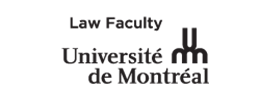
Webinar synopsis « L’éthique au cœur de la pratique policière »
On May 10, 2022, at a webinar on ethics and policing (L’éthique au cœur de la pratique policière), Executive Education HEC Montréal welcomed Fady Dagher, director of the Longueuil agglomeration police department (SPAL). Dagher took up this role in 2017 after 25 years with the Montreal police department. He and Joé T. Martineau, associate professor at HEC Montréal, engaged in a fascinating conversation about the ethical reforms he has introduced at SPAL.
Bringing the police and the community closer together
Dagher launched an immersive training program in an effort to bridge the gap between the police and the general public. The officers who volunteered to take part spent five weeks in the field, unarmed and in plain clothes, to see first-hand what life is like for people living with the realities of homelessness, mental health issues, sexual assault, autism spectrum disorders and other situations. Participants were exposed to a different scenario every two to three days.
Dagher worried they wouldn’t get enough volunteers. He thought that nobody would want to put themselves in such a vulnerable position. He couldn’t have been more wrong: he received 108 applications for 30 slots in the first group, some from officers with 15 to 25 years of experience. It was a pleasant surprise for someone who felt the appeal of the program would be limited to early-career professionals and women. “Now that was a preconceived bias on my part,” he said, smiling.
The results greatly exceeded his expectations. Participants have said the experience was the equivalent of “five to ten years on the job.” Evenings where they cook dinner and sit down to eat with families from a variety of cultural backgrounds often continue until the wee hours, as one meaningful conversation flows into another. And the community groups themselves, who had initially balked at the idea, have since pushed to repeat the experience. Ultimately, the plan is to have all 668 police officers on the force do a stint every five years.
Dagher pointed out that it was the civilian members of the SPAL (a social anthropologist, political scientist and psychologist) who developed the program, building on his vision and based on their experiences in non-police settings. But nobody imagined that the initiative would last as long as it has!
Community-based policing, committed to nipping problems in the bud
What if this immersive program were to become a permanent fixture of the police department? That is one of the principles underlying the RÉSO (Réseau d’entraide social et organisationnel) program. In close to two dozen areas of the agglomeration, officers serve as local go-tos. They are available at all times and embedded into the social fabric. The goal is to identify potential issues and engage the appropriate partners to focus on solutions before they spiral out of control.
“Some 49% of people don’t try to get any form of help before they dial straight into 9-1-1,” said Dagher, referring to a study by the Douglas Mental Health University Institute a few years ago. Officers who are better integrated into the community can intervene earlier in the process and call in psychologists or social workers as needed.
Rethinking police work in the current environment
Why do we need to revisit how police officers operate? Dagher cited a study by Ratcliffe,* stating that, of every 1,000 crimes that are committed, only 530 are reported and only four result in a jail term. From his standpoint, he said, it’s “ridiculous” to make policing strictly punitive — especially given that 70% to 80% of calls to 9-1-1 are about keeping the peace, and by extension managing mental health issues, rather than fighting crime per se.
The contrast between the expectations and realities of police work can have a significant impact on individual career paths. Officers who “thought they would be playing cops and robbers all day” are often thrust into situations they are not sufficiently equipped to handle and end up leaving after seven to ten years of service.
Realizing this, SPAL made an eye-opening video about the social intervention aspect of policing. Potential recruits who feel drawn to this type of work are invited to apply, and applicants are encouraged to explore this aspect of the job in greater depth. “It’s a moral contract,” said Dagher.
Driving change and making it stick
This new approach to police ethics is definitely shaking things up. To get others on board, Dagher had to start by recruiting officers he refers to as program “ambassadors” and win some of his naysayers over.
He has even opted to immerse himself into the daily routine of his troops. He has gone on night patrols, hanging around for hours at a time, and shedding any of the “high and mighty” trappings of his position. And not just for show, either: he has hit the streets regularly over the past few years, the sole exception being during the peak of pandemic. “The real discussions are the ones that happen in the locker room,” he said.
By showing his troops that he understands them and respects what they are doing, Dagher has been able to convert some 20% of them into ambassadors for reform. His only regret is that he himself has become the public face of these efforts. He wants to gradually step back out of the spotlight to help ensure the change becomes permanent. Once that happens, “Fady could quit tomorrow, but everything else would carry on.”
Sowing the seeds of reform in other fields?
Drawing on the SPAL experience, Dagher has suggested that, at the end of the three-year police training program, an extra year be added on mental health intervention and other, more human aspects of police work. He has even put forward the idea of incorporating an immersive community internship at the end of the 15-week program at the École nationale de police du Québec in Nicolet.
The lessons that have been learned are also applicable to non-police settings. At the very top of the corporate ladder, he said, there are emotional criteria and human considerations to factor into decision-making. At SPAL, interpersonal skills are evaluated after every operation, as well as when comes time to hand out promotions, so that these values can make their way up. The human part of it is critical, he said, because the police constantly find themselves in a grey zone. “Sometimes moral decisions are more important that legal decisions. […] What I fight for, first and foremost, are the people in my community.”
*Ratcliffe, Jerry. Intelligence-Led Policing, Second Edition, New York (États-Unis), Routledge, 2016, 222 p.
Learn more about our Certification in Ethics and Compliance program and take your leadership to new heights.
Questions? Be sure to contact Joelle Zoghbi, our friendly and knowledgeable program manager.
In collaboration with

Founding members


Partners



